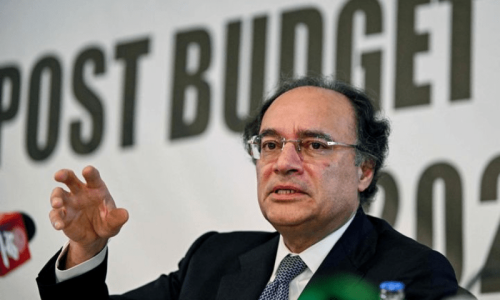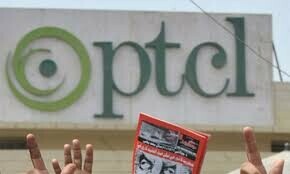ISLAMABAD: The Economic Coordination Committee (ECC) of the cabinet on Monday approved allocation of additional 200,000 tonnes of wheat from public sector stocks for supply to the Utility Stores Corporation (USC) at a cost of Rs8.7 billion.
This is part of the Rs50bn earmarked for supply of essential kitchen items to people at subsidised rates under the relief package announced by Prime Minister Imran Khan in response to the Covid-19 outbreak.
The ECC meeting, presided over by Adviser to the PM on Finance Dr Abdul Hafeez Shaikh, discussed measures to ensure uninterrupted wheat flour sale to people at the USC.
The meeting decided to set aside 200,000 tonnes of wheat for the USC from stocks of the Pakistan Agricultural Storage and Services Corporation (Passco). The supplies to the USC would, however, be ensured in tranches. “The first tranche will be of 50,000 tonnes and would be released immediately, the rest will be released on demand by the USC,” an official statement said.
The total cost of this package is Rs8.69bn, including incidental charges of Rs1.69bn. The meeting also directed that the record of the USC and Passco should be computerised to ensure transparency and facilitate decision-making.
Poverty alleviation division told to ensure transparency in disbursement of funds to the vulnerable
As part of the process, the USC has to hold competitive tendering among the flour mills for grinding of wheat for sale through its retail network in its own branding.
The ECC also called data collection from private flour mills in order to ascertain the correct situation of demand and supply of wheat/flour in the country and to ensure accuracy in decision-making.
Officials said the USC was allocated 200,000 tonnes of wheat in January. The corporation was provided about Rs21bn for subsidised sale of essential kitchen items in two installments of Rs6bn and Rs15bn. As part of the prime minister’s economic relief and stimulus package, the ECC had approved Rs50bn for the USC on March 30.
In addition, Rs2.5bn was approved for the USC for Ramazan package to ensure provision of essential commodities at subsidised rates. Under this package, the USC has committed supply of sugar at Rs68 per kg, wheat flour at Rs800 per 20kg, ghee at Rs170 per kg, gram pulse at Rs130 and rice at Rs139 and Rs149 per kg with effect from April 19 and throughout Ramazan.
The ECC asked the Poverty Alleviation Division to ensure transparency and efficiency in disbursement of funds to the vulnerable as some reports about leakage of funds had come to Dr Shaikh’s notice.
Published in Dawn, April 14th, 2020












































